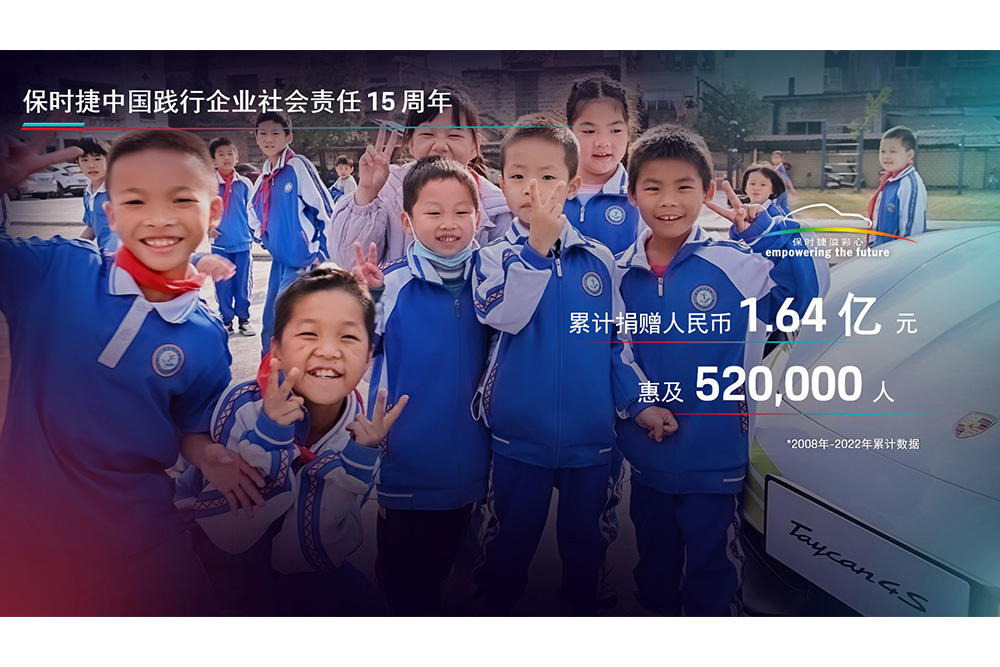BMW, Porsche, And The Complexities Of The Chinese Automotive Landscape

Table of Contents
The Allure and Challenges of the Chinese Luxury Car Market
The allure of the Chinese luxury car market is undeniable. Boasting a rapidly expanding affluent class with a growing appetite for premium vehicles, it represents a significant growth engine for brands like BMW and Porsche. However, this market is far from homogenous. Understanding the nuances of consumer preferences is crucial for success.
Chinese luxury car buyers are discerning and driven by a variety of factors beyond simple price.
- Preference for specific car features: Technology is paramount, with features like advanced driver-assistance systems (ADAS), large infotainment screens, and seamless connectivity being highly sought after. Fuel efficiency is also increasingly important, particularly in major cities with stricter emission regulations. Brand prestige, of course, remains a key driver.
- Importance of social status and brand image: Owning a luxury car in China often signifies success and social standing. Brand image and perceived exclusivity play a crucial role in purchase decisions.
- Impact of government regulations and policies: Government policies on emissions, fuel economy, and import tariffs significantly influence pricing and market access. Changes in these policies require agile responses from luxury car makers.
- Rising competition from domestic and international brands: The Chinese automotive industry is fiercely competitive, with both established domestic brands and other international players vying for market share. This necessitates innovative strategies to stand out.
BMW's Strategy in China: Localization and Innovation
BMW's success in China hinges on a strategy of localization and innovation. They've gone beyond simply importing models; instead, they have invested heavily in understanding and catering to the unique preferences of Chinese consumers.
- Successful localization strategies: This includes developing model variations specifically tailored to Chinese tastes, creating targeted marketing campaigns that resonate with local culture, and establishing robust dealer networks across the country.
- Specific models tailored for the Chinese market: BMW has introduced long-wheelbase versions of certain models to cater to the preference for increased rear-seat space.
- Electric vehicle (EV) strategy in China: BMW is aggressively pursuing its EV strategy in China, recognizing the government's push for electric mobility and the growing consumer demand for sustainable vehicles. Significant investments in charging infrastructure and local EV production are key elements of this strategy.
- Partnerships with Chinese companies: Collaborations with local businesses allow for deeper market penetration and access to specialized knowledge.
Porsche's Approach: Exclusivity and Brand Heritage
While maintaining its image of exclusivity, Porsche has strategically adapted its approach to resonate with the Chinese market. The brand's heritage and powerful brand identity serve as strong foundations.
- Marketing campaigns targeting Chinese consumers: Porsche employs sophisticated marketing campaigns that highlight the brand's performance, craftsmanship, and heritage, appealing to the aspirational desires of Chinese consumers.
- Popular Porsche models in China: The Cayenne SUV and the Macan have proven particularly successful in China due to their practicality and prestige.
- Customer service and after-sales strategies: Exceptional customer service and after-sales support are critical for maintaining brand loyalty and reinforcing the premium experience.
- Digital marketing efforts: Porsche leverages digital channels effectively to reach affluent Chinese consumers online, focusing on targeted advertising and engaging social media content.
Navigating the Regulatory Landscape and Infrastructure
The Chinese automotive market presents a complex regulatory landscape and infrastructure challenges. These elements significantly influence operational costs and market access for luxury brands.
- Government regulations impacting luxury car brands: Strict emission standards, stringent safety regulations, and fluctuating import tariffs all present challenges that require careful navigation.
- Infrastructure development and its effects on sales: The availability of charging stations for electric vehicles is crucial for the success of EV strategies. Infrastructure limitations in certain areas can hinder sales growth.
- Impact of the "Made in China" initiative: This initiative encourages domestic production and can influence sourcing decisions and manufacturing strategies for international brands.
Understanding the Dynamics of BMW, Porsche, and the Chinese Automotive Landscape
In conclusion, navigating the Chinese automotive market requires a deep understanding of consumer preferences, a robust localization strategy, and the ability to adapt to a dynamic regulatory environment. BMW and Porsche, through their unique approaches, have demonstrated a commitment to understanding and engaging this complex market. However, the challenges are ongoing, with continuous adaptation needed to maintain competitiveness. The success of these luxury brands in China serves as a case study in the complexities of global expansion in a rapidly evolving market.
Want to stay updated on the evolving landscape of BMW, Porsche, and the Chinese automotive market? Subscribe to our newsletter for in-depth analysis and insights!

Featured Posts
-
 Mentzen I Wybory 2025 Niezwykla Kampania Wyborcza
May 30, 2025
Mentzen I Wybory 2025 Niezwykla Kampania Wyborcza
May 30, 2025 -
 Ilaiyaraajas Music Rajinikanths Tribute To Indian Pride
May 30, 2025
Ilaiyaraajas Music Rajinikanths Tribute To Indian Pride
May 30, 2025 -
 Addressing Investor Concerns Bof As Take On Stretched Stock Market Valuations
May 30, 2025
Addressing Investor Concerns Bof As Take On Stretched Stock Market Valuations
May 30, 2025 -
 Udstilling Ditte Okman Praesenterer Kare Quist Han Taler Udenom
May 30, 2025
Udstilling Ditte Okman Praesenterer Kare Quist Han Taler Udenom
May 30, 2025 -
 The Threat To Canadas Measles Free Status A Fall 2024 Prediction
May 30, 2025
The Threat To Canadas Measles Free Status A Fall 2024 Prediction
May 30, 2025
Latest Posts
-
 Former Mlb Player Brandon Inge Returns To The Dugout In Kalamazoo
May 31, 2025
Former Mlb Player Brandon Inge Returns To The Dugout In Kalamazoo
May 31, 2025 -
 Detroit Tigers Notebook Meadows Nearing A Comeback
May 31, 2025
Detroit Tigers Notebook Meadows Nearing A Comeback
May 31, 2025 -
 Chase Lees Scoreless Mlb Return Roll Call May 12 2025
May 31, 2025
Chase Lees Scoreless Mlb Return Roll Call May 12 2025
May 31, 2025 -
 Brandon Inges Kalamazoo Dugout Return A One Night Stand
May 31, 2025
Brandon Inges Kalamazoo Dugout Return A One Night Stand
May 31, 2025 -
 Full Kansas City Royals Game Schedule On Kctv 5 For The 2024 Season
May 31, 2025
Full Kansas City Royals Game Schedule On Kctv 5 For The 2024 Season
May 31, 2025
